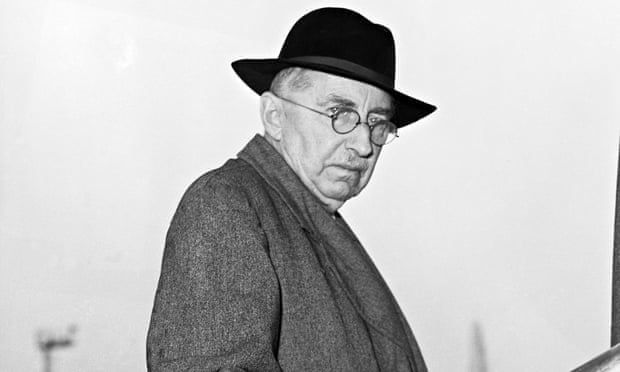Damon Galgut reveals his affinity with loners in this compelling fictionalised biography of the A Passage to India author

Damon Galgut, the South African writer, has been quietly forging a fine body of work over recent years. He has been shortlisted for the Booker prize and other awards. His books include The Good Doctor and In a Strange Room, both of which contain reflections on loneliness, solitariness and unease. Galgut is the spokesman of the ill-at-ease and the alienated.
So a fictional biography of EM Forster, whose homosexuality gave him endless angst and a perpetual sense of estrangement, makes sense as a project for Galgut. It may be that Galgut’s anxiety, his loner’s sensibility, is what drew him to Forster. He has called his novel Arctic Summer, the title of a Forster novel that was never finished. You have the sense that Galgut’s novel is designed to shape into one book many of the apparently competing aspects of Forster’s ambivalent relation with both fiction and sex.
But it is not all sturm und drang. There are some slyly funny accounts of Forster’s meetings with absurd maharajahs and social-climbing British officials; Galgut has a keen eye for the absurdity of the small princely palaces Forster frequented, most prominently in his employment by the eccentric maharajah of Dewas. The maharajah aids and abets his sexual needs, and even provides a young barber to take care of them.
At one point, back in England when he has been blocked for years, Forster tells Virginia Woolf, that he is no novelist, and she agrees rather too readily. He wonders, as Galgut puts it: “What earthly use are novels? How do they help anyone?” Not long after, in the grips of inertia, Forster suddenly sees that the way forward is to engage with the mystery of India, which had repelled him on his first visit to the Marabar Caves. He is released from torment and finishes A Passage to India to wide acclaim.
More
So a fictional biography of EM Forster, whose homosexuality gave him endless angst and a perpetual sense of estrangement, makes sense as a project for Galgut. It may be that Galgut’s anxiety, his loner’s sensibility, is what drew him to Forster. He has called his novel Arctic Summer, the title of a Forster novel that was never finished. You have the sense that Galgut’s novel is designed to shape into one book many of the apparently competing aspects of Forster’s ambivalent relation with both fiction and sex.
But it is not all sturm und drang. There are some slyly funny accounts of Forster’s meetings with absurd maharajahs and social-climbing British officials; Galgut has a keen eye for the absurdity of the small princely palaces Forster frequented, most prominently in his employment by the eccentric maharajah of Dewas. The maharajah aids and abets his sexual needs, and even provides a young barber to take care of them.
At one point, back in England when he has been blocked for years, Forster tells Virginia Woolf, that he is no novelist, and she agrees rather too readily. He wonders, as Galgut puts it: “What earthly use are novels? How do they help anyone?” Not long after, in the grips of inertia, Forster suddenly sees that the way forward is to engage with the mystery of India, which had repelled him on his first visit to the Marabar Caves. He is released from torment and finishes A Passage to India to wide acclaim.
More
No comments:
Post a Comment